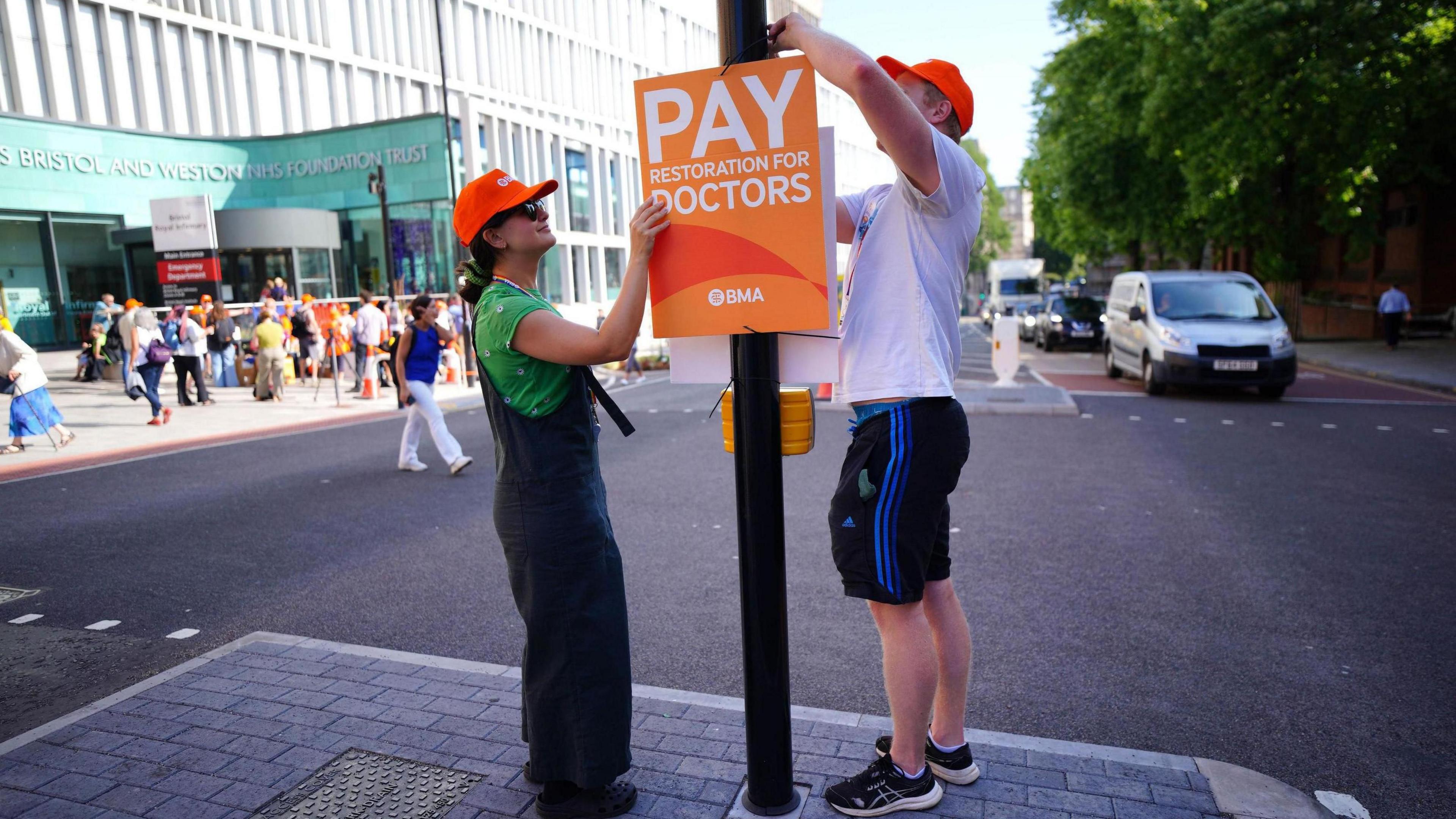Resident doctors announce five-day strike in November

- Published
The British Medical Association has announced a fresh round of strikes in England after talks broke down again with the government.
The union and government have been in dialogue throughout the summer and early autumn since the last walkout at the end of July.
But the BMA said with no progress being made there would be a five-day walkout by resident doctors, the new name for junior doctors, starting on Friday 14 November.
This will be the 13th strike in the long-running pay dispute since March 2023 and is expected to cause significant disruption, particularly in hospitals.
Resident doctors represent nearly half the medical workforce and range from doctors fresh out of university through to those with up to a decade of experience.
They will walk out of both emergency and routine care with senior doctors brought in to provide cover.
While the NHS attempted to keep as many routine services running as possible during the last strike, thousands of operations and appointments still had to be postponed.
Good faith
Dr Jack Fletcher, chair of the BMA's resident doctors committee, said: "This is not where we wanted to be.
"We talked with the government in good faith. We hoped the government would see that our asks are not just reasonable, but are in the best interests of the public and our patients and would also help stop our doctors leaving the NHS.
"While we want to get a deal done, the government seemingly, does not, leaving us with little option but to call for strike action."
Health Secretary Wes Streeting has maintained throughout this year that he would not negotiate on pay after resident doctors had received pay rises totalling nearly 30% in the past three years.
The talks, therefore, had centred on career progression, working conditions and out-of-pocket expenses like exam fees.
The union argues that, despite the pay rises, resident doctors' pay is still a fifth lower than it was in 2008, once inflation is taken into account.
They have also said they wanted the government to address what they say is a shortage of jobs after the second year of training when resident doctors move into speciality training.
This year there were more than 30,000 applicants for 10,000 jobs at this stage, although some will have been doctors from abroad.
Health Secretary Wes Streeting called the announcement "preposterous".
"The BMA are walking away from an offer to improve resident doctors' working conditions and create more specialty training roles to progress their careers. The BMA are blocking a better deal for doctors.
"These unreasonable and unnecessary strikes do not have the public's support.
"The BMA's reckless posturing will harm patients, leave other doctors and NHS staff to pick up the pieces and divert resources away from rebuilding the NHS."
Rory Deighton, of the NHS Confederation, which represents health leaders, said he was "bitterly disappointed" talks had broken down again - and urged the BMA to get back to the negotiating table.
"We now have to prepare to mitigate the disruption of more strikes at the same time as they are getting ready for what is likely to be another very difficult winter, while continuing to bear down on their elective waiting lists.
"Ultimately, despite the best efforts to plan and put contingencies in place, it is patients who bear the brunt of industrial action, with more cancelled appointments, tests and operations leaving people waiting longer for the care they need."
Get in touch
Are you a doctor? Or a patient with an appointment during the strike? How are you affected by the issues in this story?